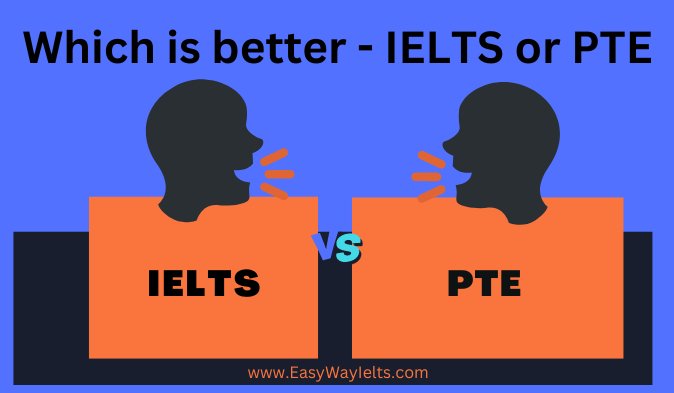CAEL is specifically tailored for Canadian academic contexts, focusing on tasks and skills students will need in their university or college studies.
IELTS, on the other hand, is a more general test, offering both Academic and General Training versions to cater to various purposes, such as study, work, or immigration to English-speaking countries.
Here is a table depicting the key differences between the Canadian Academic English Language (CAEL) and the International English Language Testing System (IELTS):
| Difference between CAEL and IELTS | ||
| Aspect | CAEL | IELTS |
| Test Format | Computer-delivered, 4 sections: Listening, Reading, Writing, Speaking, with a one-on-one speaking interview component | Paper or computer-based, 4 sections: Listening, Reading, Writing, Speaking, with face-to-face speaking interview |
| Scoring System | Scores on a band scale from 10 to 90, averaging the four section scores, rounded to the nearest whole number | Reported on a nine-band scale, with individual scores for each section and an overall band score |
| Purpose | Accepted by Canadian universities for admission, focuses on academic contexts and tasks | Academic version used for university admissions or professional registration; General Training for migration, work or secondary education |
| Applicability | Primarily for Canadian educational institutions, preparing students for academic language demands | Worldwide acceptance for university admissions, migration, work, and secondary education in English-speaking countries |
| Listening Section | Assessing listening comprehension in academic contexts | Listening to recorded monologues and conversations across various situations |
| Reading Section | Academic reading passages, analyzing complex texts | Varied reading passages from books, journals, newspapers, evaluating comprehension and analysis skills |
| Writing Section | Task of summarizing, analyzing, or arguing in academic settings | Task 1: Describe visual data (Academic) or write a letter (General Training), Task 2: Write an essay on a given topic |
| Speaking Section | One-on-one interview, focusing on academic speaking skills | Face-to-face interview with a certified examiner, discussing a range of topics from personal to abstract |
| Test Versions | Single test format tailored for academic English | Academic version for higher education, General Training for migration, work, or secondary education |
In conclusion, while both CAEL and IELTS assess English language proficiency, they differ in their focus, target audience, and acceptance.
CAEL is specialized for Canadian academic settings, while IELTS offers a more general assessment for a variety of purposes, including education, work, and immigration.
Comparing Difficulty: CAEL vs. IELTS
When comparing the difficulty levels of the Canadian Academic English Language (CAEL) and the International English Language Testing System (IELTS), several aspects of the tests’ content, format, and scoring criteria come into play.
Content & Format
CAEL – The CAEL test is designed to assess English proficiency in academic contexts, particularly for students planning to study in Canadian universities or colleges.
Its content reflects this focus, with listening passages often drawn from academic lectures, reading materials from scholarly articles, and writing tasks that involve summarizing academic papers or arguing points in an academic style.
The speaking section includes a one-on-one interview with an examiner, emphasizing academic communication skills.
IELTS – In contrast, IELTS offers two versions, each tailored to different purposes.
The Academic version assesses readiness for university study, featuring reading passages from academic journals, listening excerpts from lectures, and writing tasks that require analysis and interpretation of complex information.
The General Training version, on the other hand, includes more practical, everyday scenarios such as workplace communication, social interactions, and general interest topics.
Both versions include a speaking section with face-to-face interviews, although the topics vary between Academic and General Training.
Vocabulary & Language Complexity
CAEL – The vocabulary and language complexity in CAEL tends to be more academic and specialized, reflecting the demands of higher education.
Test takers need a solid grasp of academic vocabulary, formal writing styles, and the ability to comprehend complex academic texts.
IELTS – The vocabulary in IELTS varies based on the version. In the Academic version, vocabulary tends to be more specialized and academic, similar to CAEL.
However, the General Training version includes a mix of everyday vocabulary and more specialized terms related to work or daily life.
Remember, both versions require a range of vocabulary to tackle the different tasks.
Writing Tasks
CAEL – Writing tasks in CAEL often involve synthesizing information from complex texts, providing critical analysis, or constructing arguments in an academic style.
This can be challenging for test takers who are not accustomed to academic writing conventions.
IELTS – Writing tasks in IELTS Academic require candidates to describe visual data, write essays on academic topics, or summarize information from graphs or charts.
The General Training version includes tasks like letter writing or essay writing on everyday topics, which may be more familiar to some test takers.
Scoring Criteria
CAEL – The scoring in CAEL is based on a band scale from 10 to 90, with each section contributing to the overall score.
Test takers are assessed on their ability to handle academic language, analyze complex texts, and articulate ideas clearly and cohesively.
IELTS – The scoring in IELTS is also based on a band scale, ranging from 1 to 9, with individual scores for each section and an overall band score.
The criteria include the ability to understand main ideas and detailed information, follow arguments, and present ideas logically in both written and spoken forms.
Difficulty Comparison
Both CAEL and IELTS require a strong command of English language skills across listening, reading, writing, and speaking.
They both assess the ability to comprehend and analyze information, express ideas clearly, and engage in effective communication.
The main difference lies in the focus of the tests. CAEL is specifically tailored for academic contexts, with a heavy emphasis on academic language, writing styles, and tasks.
It is designed to prepare students for the rigorous demands of university studies in Canada.
On the other hand, IELTS offers versatility with its Academic and General Training versions, catering to different purposes such as university admissions or migration.
It is clear that the difficulty of CAEL versus IELTS vary based on the test taker’s familiarity with academic language and writing styles.
CAEL tends to be more specialized and academic-focused, particularly in its writing tasks and vocabulary usage.
IELTS, while also challenging, offers a broader range of topics and contexts, depending on the version taken.
You as test takers should consider your specific goals and strengths when choosing between these two tests.
Find Your Perfect Test: CAEL or IELTS?
Choosing between the Canadian Academic English Language (CAEL) and the International English Language Testing System (IELTS) can be a crucial decision based on your individual needs, study goals, strengths, weaknesses, and other factors.
Here’s a guide to help you determine which test might be the best fit for you:
- STUDY GOALS
CAEL – If your primary goal is to pursue higher education in Canada, particularly at universities or colleges, CAEL might be the ideal choice.
It is specifically designed to assess English proficiency in academic contexts, preparing you for the language demands of university studies.
IELTS – If you are considering studying abroad in an English-speaking country, IELTS offers both Academic and General Training versions.
The Academic version is tailored for university admissions, while the General Training version is suitable for migration, work, or secondary education.
- STRENGTHS AND WEAKNESSES
CAEL – If you excel in academic writing, analysis of complex texts, and are comfortable with formal academic language, CAEL could showcase your strengths effectively.
IELTS – If you have a strong vocabulary range across various topics, good listening comprehension, and are adept at expressing ideas in a clear and concise manner, IELTS might be a good fit.
- TEST AVAILABILITY & COST
Consider the availability of test centers for both CAEL and IELTS in your location. Check the testing dates and locations to ensure you can take the test at a convenient time.
Compare the costs of taking both tests, including registration fees, study materials, and any additional expenses. Factor in any preparation courses or materials you might need.
You can check the test cost and book a test date for CAEL from here, and for IELTS from here.
- UNIVERSITY & VISA REQUIREMENTS
When considering whether to take the Canadian Academic English Language (CAEL) or the International English Language Testing System (IELTS), it is crucial to check the specific English language proficiency requirements of the universities or colleges you are interested in.
Different institutions may have preferences or specific policies regarding which test they accept or prefer.
CAEL Acceptance – Some universities or colleges in Canada may have a preference for the CAEL test due to its focus on academic English and its relevance to Canadian academic contexts.
They may require a minimum CAEL score for admission to their programs.
IELTS Acceptance – Many universities and colleges worldwide, including those in English-speaking countries such as the UK, Australia, and the USA, accept IELTS scores for admissions.
The IELTS Academic version is often a common requirement for international students applying to English-medium universities.
Institutional Preference – It is essential to check if the institutions you are applying to have a preferred test.
Some universities may explicitly state whether they accept CAEL, IELTS, or both. They may provide minimum score requirements for each section or an overall band score.
Comparative Acceptance – While most institutions accept both CAEL and IELTS, some may have a preference for one test over the other.
This preference could be based on historical data, institutional partnerships, or perceived alignment with their academic programs.
IELTS for Visa – When applying for study visas or immigration to English-speaking countries, IELTS General Training scores are often required.
These countries, including Canada, Australia, the UK, and New Zealand, use IELTS as proof of English proficiency for visa purposes.
CAEL for Canadian Immigration – In some cases, especially for Canadian immigration, CAEL scores might also be accepted.
The test’s focus on academic English demonstrates readiness for Canadian academic settings, which might align with visa requirements for certain programs.
Test Format Preferences – Review the test formats of CAEL and IELTS. Consider which format aligns better with your learning and testing preferences.
CAEL is fully computer-delivered, while IELTS offers both paper-based and computer-based options.
Preparation Resources – Look into the availability of preparation materials, practice tests, and study resources for both CAEL and IELTS. Adequate preparation significantly impacts your performance on the test.
Conclusion
In conclusion, it’s crucial for you to grasp the key differences between CAEL and IELTS if you’re aiming to showcase your English proficiency.
While IELTS follows a traditional structure with its four modules, CAEL presents a more integrated approach through its single test format.
Understanding the scoring systems and subtle variations in test content will help you choose the exam that best fits your strengths and test-taking preferences.
This knowledge empowers you to make informed decisions, ensuring you can confidently and effectively demonstrate your language abilities when the time comes.
Frequently Asked Questions (FAQs) on CAEL and IELTS
- What is the main difference between CAEL and IELTS?
CAEL is a single, integrated test, while IELTS consists of four separate modules: Listening, Reading, Writing, and Speaking.
- Which exam is more suitable for me, CAEL or IELTS?
It depends on your preferences and strengths. CAEL might suit those who prefer a single-test format, while IELTS could be better if you prefer segmented testing.
- How is the scoring different between CAEL and IELTS?
CAEL uses a scoring scale of 10-90, while IELTS uses a 0-9 band score system for each module, with an overall band score.
- Can I use CAEL or IELTS for immigration purposes?
Both exams are accepted for immigration to Canada, but specific requirements vary. Check with the immigration authorities or your chosen institution.
- What are the test formats for Speaking in CAEL and IELTS?
CAEL includes an integrated speaking task, where you respond to prompts based on listening and reading materials. IELTS has a separate Speaking module, conducted face-to-face with an examiner.
- How long are the test results valid for CAEL and IELTS?
Both CAEL and IELTS scores are typically valid for two years from the test date.
- Can I request re-marking of my CAEL or IELTS exam?
Yes, both CAEL and IELTS offer a process for requesting re-marking of specific sections or the entire test, though there is usually a fee involved.



